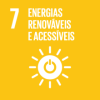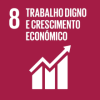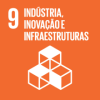Teresa Candeias, lecturer at ULusófona analyses the conditions for defending national interests and promoting national and international stability
Sustainable Development Goals (SDG)






Teresa Candeias
The year 2025 begins in a context of uncertainty and great complexity on the international stage. In an increasingly volatile geopolitical and technological environment, it is crucial for states to create conditions to defend national interests and promote national and international stability.
In this scenario, states must adopt a strategy by defining priorities that allow them to mitigate the impacts of geopolitical and technological volatility, as well as seize emerging opportunities. In this regard, investment in innovation plays an important role as it boosts national competitiveness and positions the country at the forefront of technological transformations. In parallel, the development of skills through investment in education and training becomes essential as a guarantee of adaptability and resilience of human capital in the face of rapid changes in the labour market. Energy transition remains a priority, enabling a reduction in energy dependence and, consequently, strengthening national security. Another fundamental vector is strengthening economic resilience, which involves reinforcing strategic sectors and diversifying supply chains, thereby reducing vulnerabilities to unforeseen external shocks. In this context, economic diplomacy gains increased relevance as it allows for the strengthening of commercial alliances and the diversification of economic partnerships, mitigating geopolitical risks and ensuring national economic stability.
In this context, the inauguration of the new United States administration last month underscores the importance of the first 100 days of governance and the need to anticipate changes. The decisions made in this initial period have the potential to significantly influence global investment expectations, business confidence, and international economic and diplomatic dynamics. The international community will remain attentive to the actions and statements of the new administration, seeking to understand and anticipate how it intends to exert its influence in the coming years, at a time when unprecedented challenges and transformative opportunities are being faced.
In a world characterised by geopolitical uncertainties and disruptive technological advances, the ability of states and organisations to navigate this complex scenario will depend on their willingness to adapt to changes and anticipate future challenges.
Teresa Candeias
Director of the Bachelor’s Degree in Management at Lusófona University - Porto University Centre
Source: SOL
Related Courses
- Bachelor in Political Science and International Relations (Lisboa)
- Masters in Political Science - Citizenship and Governance (Lisboa)
- Bachelor in Political Science and Election Studies (Porto)
- Masters in Social Work and Social Policy (Lisboa)
- Postgraduation in International Relations and Political and Economic Diplomacy (Porto)











